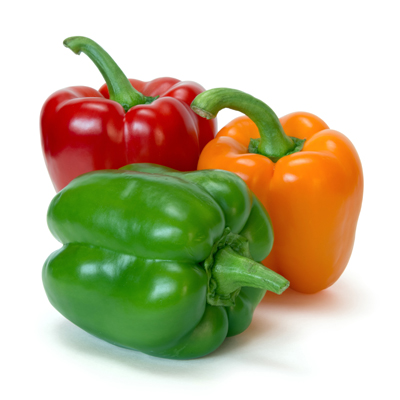
Health Benefits
Just one small red, yellow, or orange bell pepper will provide you with up to three times your daily requirement of vitamin C; Peppers also provide vitamin B6, another immune-supporting nutrient.
Buy
Look for firm peppers with taut skin, free of wrinkles or cracks. Peppers with thick walls are juicier and feel heavy for their size. Peppers generally rank high on the "Dirty Dozen" list of pesticide-laden vegetables, so buy organic peppers whenever possible.
Store
Refrigerate in a paper bag in the vegetable drawer of your refrigerator for up to five days.
Prepare
Roasted peppers in your fridge are like money in the bank. You can use them in salads, dips, pasta, and soups. They have endless possibilities. To roast, place peppers directly over a gas flame and cook, turning with tongs until charred on all sides. You can also roast them in the oven under a broiler. Transfer peppers to a bowl and cover with plastic wrap until cool enough to handle. Rub the charred skin off with a paper towel. Refrigerate until ready to use. You can also use them raw in salads or on their own. Just remove the stem and seeds, and slice or dice them to your liking.
Did you know?
Red, yellow, and orange peppers start as green in color. The color and taste change depending on how long they ripen on the vine. It's this extra time in the sun that gives them their brightly-hued colors. Colored peppers are often more expensive than their green counterparts.
Read about the amazing health benefits of Broccoli.
